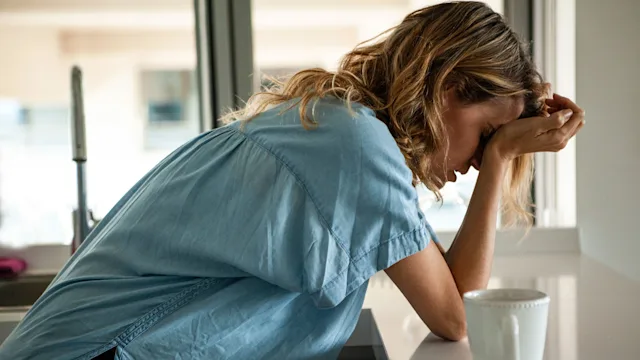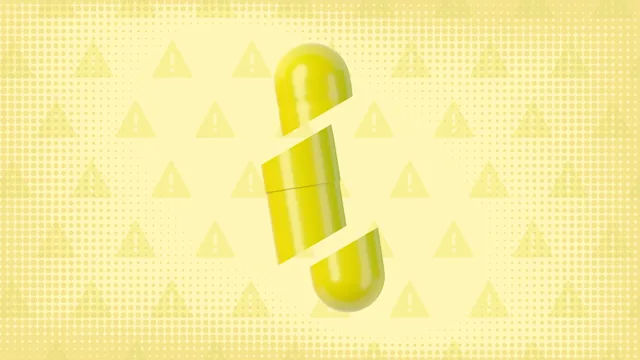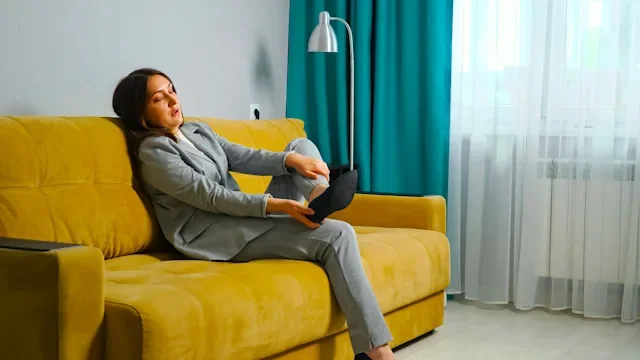Key takeaways:
A hernia happens when the organs in your abdomen (usually part of the intestines) push through muscles or tissue.
Symptoms of a hernia can include a bulge or tender area and pain or discomfort when lifting something heavy.
Here’s how three people who have experienced a hernia describe what it’s like.
Learning she had a hernia was a surprise to 42-year-old Myisha Malone-King of Baltimore.
At first, Myisha wasn’t worried about having some unusual symptoms. She noticed a small discolored area on her abdomen. There was also a little bulge at her navel (belly button). Pain around the center of her stomach would come and go. It was sudden, and she would need to lie down until it passed.
“The pain would be sharp and intense. It would last for 2 minutes, and then it would disappear and I wouldn’t have it for a while,” she says. “When it came it would stop me in my tracks.”
Search and compare options

She made notes about her symptoms and planned to talk them over with her doctor at their next office visit. But she never got the chance — because one day, the pain started and didn’t get better. It was so bad that she asked her husband to take her to the emergency room.
After several tests, the doctors told her that she had a hernia that involved her intestines. In addition to the hernia, they found hundreds of stones in her gallbladder. Myisha needed an operation right away.
“My umbilical hernia, which I didn’t know I had, was twisted in my bowel somehow,” she says.
She had laparoscopic surgery, which uses several small incisions instead of one large one. This can shorten time in the hospital and healing time at home. It also means less scarring on the belly, which is important to some patients. Her hernia was repaired using surgical mesh.
Myisha has some advice for people facing hernia repair. “Ask as many questions as possible,” she says. “Make sure that you understand the ramifications of the surgery as well as the recovery and aftercare, because it’s very important.”
A hernia was a psychological blow
Ryan Stevens, 49, of Maumee, Ohio, noticed a small lump on his abdomen, which grew larger over the next few years. His colorectal surgeon quickly diagnosed it as a hernia.
“She looked at it while I was standing as she wanted to see how far out it protruded. Then, when I was on the examination table she manipulated it with her hands to see how easily it would reduce back down into my body,” he recalls. “You could feel it slip back into the cavity.”
Ryan never had any abdominal pain, and nobody could tell that he had a hernia by looking at him. However, the growing bulge on his abdomen still bothered him. As an athlete and a swimmer, it was difficult for him to cope with emotionally.
“You feel like your body has betrayed you,” he says. “I had a giant mountain on my stomach that shouldn’t have been there. Even if no one knows, it wears on you. I don't know why, but that's a huge psychological part of it.”

Ryan’s first surgeon didn’t want to repair the hernia because of his history of Crohn’s disease. Crohn’s is an inflammatory bowel disease (IBD) that causes inflammation in the digestive tract. The surgeon didn’t want to risk possible complications from a mesh repair. Ryan sought another opinion from a surgeon who specialized in hernia repair.
Together, they decided to go forward with surgery. The procedure successfully repaired the hernia. Ryan describes the surgery as painful, but he didn’t have any complications.
“My best advice would be: Find a surgeon who deals with only hernia repair,” he says. “They’re going to be more up to speed than that generalized colorectal surgeon who does it all.”
Trying to ignore the pain
Joseph Conrad Sparrow, 57, of Bowie, Texas, has lived with a hernia for 4 years. It appeared one day while he was doing some work to help out a friend.
“I picked up a large pipe and instantly felt something like a tearing sensation on the right side of my abdomen,” he remembers. “It has been getting progressively worse since that time.”

Joseph is aware of the hernia throughout the day, which feels like a lump on his side. It causes an ache that doesn’t get any better when he changes positions. He tries to avoid aggravating the area. This includes being mindful about lifting things and playing with his grandkids. So far, Joseph has not found hernia wraps (a type of garment that applies compression to the area) to be helpful in addressing the pain.
He’s not ready to have surgery, though. For now, he says living with the hernia is preferable to taking time out of his life to recover from surgery. He can get a few hours of relief from the pain by taking a long bath in warm water.
“I do my best to ignore the pain,” he says.
“The day will come, I am sure, that I will decide that the removal of this hernia will be something I can no longer avoid,” he says. However, he adds that, “It will take a much greater increase in discomfort and pain before any such decision regarding surgery becomes a serious thought.”
What does the doctor say?

Patricia Pinto-Garcia, MD, MPH
Medical Editor
Hernias develop when the organs in your abdomen (usually part of the intestines) push through muscles or tissue. You can develop a hernia at any age, and you can even be born with a hernia.
You’re more likely to develop a hernia if you’ve had surgeries in your abdomen or if you have a medical condition that increases the pressure inside your abdomen. But normal activities can also increase the pressure inside your abdomen and increase the risk of developing a hernia. Lifting heavy objects, straining from constipation, and even constant fits of coughing and sneezing have been linked to hernias.
There are many types of hernias, as these stories show. They can develop in different locations on the body — like the groin, scrotum, upper thigh, around the belly button, near or through scars, and the center of the upper abdomen.
A hernia always looks like a lump or bulge, and it should be soft or squishy when you touch it. It may come and go, and you may even be able to push it back in. You may feel an aching or pressure feeling around your hernia.
You will need to get your hernia repaired. But if your hernia isn’t bothering you, you may be able to schedule that repair for a time that’s best for you, like Joseph Conrad Sparrow.
However, if your hernia becomes very painful or feels hard or tender, see a healthcare provider right away. This is a sign that your hernia is twisted and that blood can’t get to your intestines. As Myisha Malone-King’s story shows, this is a medical emergency that needs urgent treatment.

Why trust our experts?

















